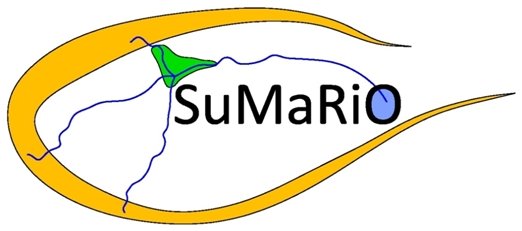SuMaRiO
Description:
The overarching goal of SuMaRiO is to support oasis management along the Tarim River under conditions of climatic and societal changes. A main result envisaged is to develop an indicator-based Decision Support System (DSS) that allows a Sustainability Impact Assessment (SIA) within regional planning. This SIA will take into account the perspectives of all relevant actors and consider relevant Ecosystem Services (ESS) in the problem field of land and water management in the Tarim River Basin. The perspectives will be obtained and analyzed through a transdisciplinary research process. Then, under given scenario assumptions, possible actions and their impacts are estimated. In the implementation phase, the goal is to train Chinese partners in the use of the English and Chinese DSS.
Within the Work Block 2 “Regional climate change and discharge of the Tarim tributaries” aiming at the analysis of the dynamics of water discharge of three main tributaries of the Tarim River: Aksu, Hotan and Yarkant under regional climate change scenarios, we develop a hydrological model for upstream catchments and quantify the water availability.
The hydrological model WASA (Model of Water Availability in Semi-arid and Arid Environment) will be set up for the headwaters of Tarim will simulate water availability via the quantification of glacier extent and glacier mass change (ice melting), snow accumulation and melting, evapotranspiration, soil moisture, groundwater recharge, and flow in rivers in the headwater catchments. Since glaciers provide a vast portion of the fresh water discharge, the correct assessment of glacial storage dynamics will be targeted. WASA will be further advanced to consider the following glacial processes and properties: glacier volume consideration and volume-area evolution in time; redistribution of glacial mass with altitude as a result of ice flow processes; debris-covered glacier parts and their melt dynamics. The glacial processes will be implemented and parameterized in WASA based on data delivered by the monitoring of the cryosphere. WASA will be integrated in a multi-objective calibration framework to consider glacier mass-balances, snow cover patterns and discharge measurements as constraining observations.
project coordination:
- Universität der Bundeswehr München
- Katholische Universität Eichstätt-Ingolstadt
German project partners:
- Universität der Bundeswehr München
- Katholische Universität Eichstätt-Ingolstadt
- Potsdam-Institut für Klimafolgenforschung (PIK)
- Universität Trier
- Deutsches GeoForschungsZentrum Potsdam (GFZ)
- Technische Universität Dresden
- Goethe Universität Frankfurt am Main
- Technische Universität Berlin
- Universität Hohenheim
- Hochschule für nachhaltige Entwicklung Eberswalde
- Ernst Moritz Arndt Universität Greifswald
Chinese project partners:
- Xinjiang Institute of Ecology and Geography Chinese Academy of Sciences
- China Meteorological Administration (CMA)
- Xinjiang University



